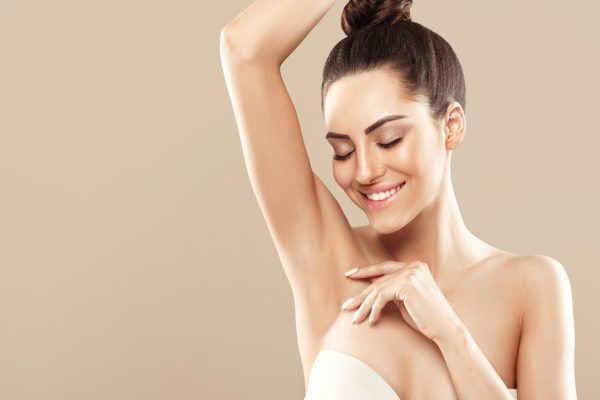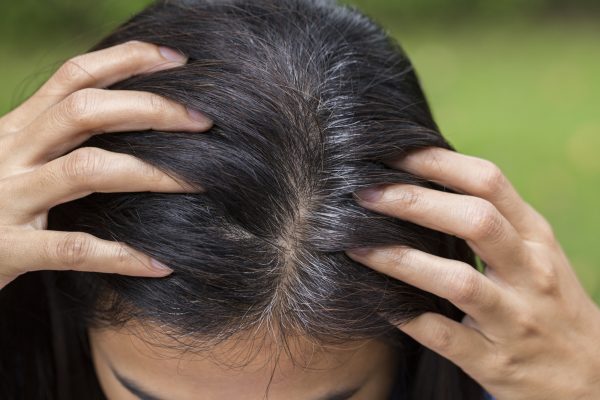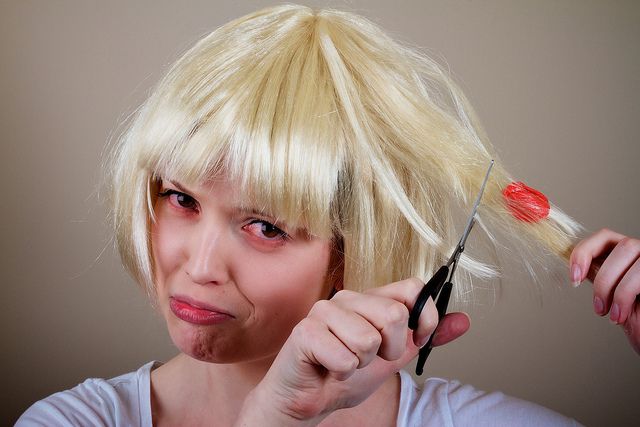You can’t ignore your scalp if you want strong, lustrous, and generally healthy hair. Applying treatments to your hair’s lengths is important, but by maintaining your scalp in good shape, you can create a best conditions for healthy hair development.
You’ve probably heard about the benefits of exfoliating your face, and they extend beyond your hairline as well. “Scalp exfoliation is the act of eliminating dead skin cells and loosening build-up,” explains Devin Graciano, a professional hairdresser and Goldie Locks co-founder.
It’s beneficial for individuals who wish to promote natural hair development and avoid premature hair loss, she says, because build-up can promote an unfavorable scalp environment and restrict growth.
According to William Gaunitz F.W.T.S., a licensed trichologist and creator of Advanced Trichology, exfoliating your scalp can also help address existing issues such as excess oil and dandruff.
Just don’t get too excited. According to Graciano, all scalp should exfoliate no more than twice a week to avoid causing or worsening scalp issues.
“When you over-exfoliate the scalp, you generate a thinner layer of the epidermis, which can cause irritation and an overactive immunological reaction, resulting in flaking and damage to the scalp,” Gaunitz explains.
Continue reading for additional information on how to exfoliate your scalp and the products you should use. Experts explain how to exfoliate your scalp based on your skin type below.
Exfoliating Your Scalp
Normal Skin
If your scalp is not greasy or dry, you have a “normal” and balanced scalp. In this scenario, the method of exfoliation is mostly a question of personal choice.
A physical exfoliant, such as a scrub or a scalp massager, physically dislodges build-up on your scalp, making it simpler to rinse away.
Alternatively, you can use a chemical exfoliant, which is a product that contains an acid ingredient(s), most often alpha hydroxy acids (AHAs) or beta hydroxy acids (BHAs).
According to Loretta Ciraldo M.D. F.A.A.D., a Miami-based board-certified dermatologist and founder of Dr. Loretta Skincare, the acids destroy the “glue” between dead skin cells, allowing them to be shed more readily.
“Physical exfoliators are an excellent cure for removing a few layers of [surface] dead [skin] cells,” Dr. Ciraldo notes. If you have a lot of product build-up and need a thorough wash, she recommends using a chemical exfoliant.
On days when you don’t feel like washing your hair, you may use a scalp brush or massager, such as the Sachajuan Scalp Brush. “A huge advantage of a brush exfoliator is that you don’t have to wash your hair,” Dr. Ciraldo explains. “This can work for a daily or every other day regimen for light scalp build-up.”
How frequently you wash your hair and how many style products you use will influence how frequently you should exfoliate your scalp. According to Graciano, once a week is usual for individuals who have balanced scalps yet use a lot hair styling products.
“Twice a month or every other week is perfect for individuals who aren’t heavy-handed with product use and just need a healthy reset without needing to treat a disease,” she adds.
Dry Skin
If you experience irritation and flaking and your scalp doesn’t generate a lot of oil, you probably have a dry scalp. In this scenario, physical exfoliants are preferable than chemical exfoliants since they may gently take away flakes and are less likely to further dry up your scalp, according to Dr. Ciraldo.
“Treating a dry scalp should be done in two stages: gently pulling away the dry white flakes and then ensuring that the skin on your head is adequately hydrated,” explains Graciano.
To begin, Graciano recommends combing your scalp before getting into the shower to release any flakes on your head. She suggests shampooing your hair as normal and using a hair mask, such as the Goldie Locks Ultra Hydrating Hair Mask, while you’re in the shower.
“Once you’ve applied the hair mask from mid-strands to ends, make sure you have excess on your hands and fingers, and [use the remaining product to] luxuriate in a pleasant and nourishing scalp massage.” (Related: The Best Dry Hair Conditioners)
If you have significant flaking, Graciano recommends using a scalp scrub with salt or sugar abrasives instead of the brush, as scrubs provide more effective exfoliation. “Start on damp hair and separate your hair in two to three-inch portions when choosing a physical scrub,” she advises.
Make certain that the scrub is applied directly on your skin. Begin at the crown of your head and work your way down to your ears. Then, massage the scrub into your skin from the top of your head to the nape of your neck.
“Once applied, give yourself a good scalp massage while the exfoliator works to exfoliate dead skin cells,” Graciano recommends. After exfoliating, use shampoo and conditioner to finish.
There is no need to use a hair mask in this scenario because many scrubs (for example, Briogeo Charcoal + Coconut Oil Micro-Exfoliating Scrub) contain hydrating components. Graciano recommends exfoliating your scalp no more than once a week if you have a dry scalp.
Oily Skin
Those who have an oily scalp frequently have greasy hair. If this describes you, use a chemical exfoliator product like Inkey List Salicylic Acid Exfoliating Scalp Treatment, a pre-shampoo treatment.
“AHAs and BHAs are known to exfoliate dead skin, unblock hair follicles, and eliminate excess oil,” Graciano explains. (Related: Other Than Dry Shampoo, How to Get Rid of Greasy Hair)
“If you have thick, scaly build-up or a highly greasy scalp, I recommend utilizing a chemical exfoliant product,” Dr. Ciraldo says.
In addition to topical serums, you can use a shampoo prepared with exfoliating acids in place of your usual shampoo a few times each week.
For patients with greasy hair, Dr. Ciraldo frequently prescribes Neutrogena Therapeutic Shampoo-Scalp Build-Up Control. Graciano recommends exfoliating up to twice a week if you have an oily scalp.
To avoid over-exfoliation or general overuse, whichever type of exfoliation you pick, make sure to follow the recommendations on the box of your product.
If you have more serious scalp problems, you should see a dermatologist for a treatment plan.
Overall, exfoliating is essential for healthy hair. Consider this your signal to begin adding it into your regimen if you haven’t already.


